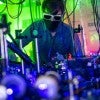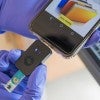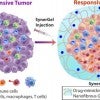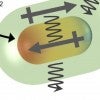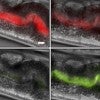Seven research teams win Carbon Hub funding
March 8, 2021
Carbon Hub, Rice University's zero-emissions research initiative, has awarded seed grants for seven projects that will rapidly advance its vision for transforming the oil and gas sector into a leading provider of both clean hydrogen energy and solid carbon products that can be used in place of materials with large carbon footprints.
Cancer ‘guardian’ breaks bad with one switch
March 5, 2021
A mutation that replaces a single amino acid in a potent tumor-suppressing protein makes it prone to nucleating amyloid fibrils implicated in many cancers as well as neurological diseases.
Study aims to help governments maximize profits from oil and gas auctions
March 5, 2021
Federal and state governments auction leases to oil and gas companies to extract natural resources from public land. A revamp of the auction system — utilizing a new model developed by a Rice University economist — could lead to more competitive bids and, ultimately, more money for governments.
Camera traps reveal newly discovered biodiversity relationship
March 3, 2021
In one of the first studies of its kind, an analysis of camera-trap data from 15 wildlife preserves in tropical rainforests revealed a previously unknown relationship between the biodiversity of mammals and the forests in which they live.
Bottling the world's coldest plasma
February 28, 2021
Rice University physicists have discovered a way to trap the world's coldest plasma in a magnetic bottle, a technological achievement that could advance research into clean energy, space weather and astrophysics.
Junghae Suh named AIMBE fellow
February 15, 2021
Rice bioengineer Junghae Suh has been named a fellow of the American Institute for Medical and Biological Engineering.
Light flips genetic switch in bacteria inside transparent worms
December 22, 2020
Researchers from Rice University and Baylor College of Medicine have shown that colored light can both activate and deactivate genes of gut bacteria in the intestines of worms. The research shows how optogenetic technology can be used to investigate the health impacts of gut bacteria.





